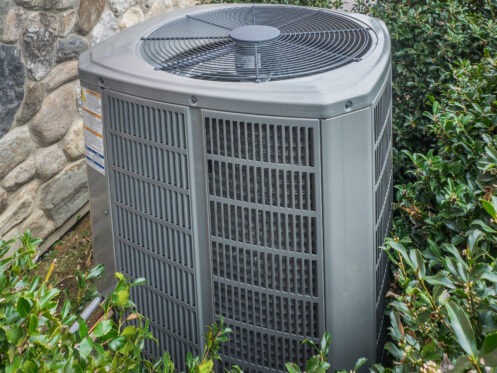Efficiency, cost-effectiveness and environmental impact are all typical factors considered by homeowners when deciding to improve important home systems. There are many advantages to switching to a more energy-efficient heating system beyond merely saving money. In this detailed guide, we will go over 10 strong arguments in favor of installing a more energy-efficient heating system, including a decrease in heating costs and a reduced effect on the environment. Every one of these arguments highlights the advantages of using cutting-edge, environmentally friendly technology that not only improves convenience but also helps achieve sustainability targets.
1. Save on Heating Bills
The possibility of significant savings on heating expenditures is a major incentive to upgrade to a more energy-efficient heating system. Lower efficiency in operation causes traditional heating systems, particularly older types, to use more energy and cost more to run. On the other side, systems that maximize efficiency use less energy to provide the same or greater heating performance. The upfront cost of an energy-efficient system is more than justified by the money saved on power bills over time.
2. Better Indoor Air Quality
Enhanced air filtration capabilities are standard on energy-efficient heating systems, which helps keep indoor air quality high. You may be putting yourself at risk when you use older systems since they can recirculate allergens, chemicals, and dust. Investing in a more energy-efficient system is a great way to protect your family’s respiratory health by filtering the air that circulates in your house, which is especially helpful for those who suffer from allergies or respiratory issues.
3. Fewer Repairs
Due to component wear and tear, older heating systems require maintenance more frequently. Conversely, systems that are energy efficient and built with current technology and long-lasting materials are less likely to break down. The reduced likelihood of having to pay for unforeseen and expensive repairs is one of the most valuable benefits of upgrading to a modern, energy-efficient heating system. This dependability not only helps you save money over time, but it also guarantees that you will have steady heating throughout the winter months, so there will be no annoying interruptions.
4. Better Indoor Comfort
Better temperature control and more uniform heating throughout your house are two benefits of energy-efficient heating systems. While earlier versions could have trouble keeping temperatures constant, newer systems allow for fine-grained regulation of the indoor environment. By doing so, you can make your house more comfortable overall by preventing cold areas and keeping the temperature consistent throughout.
5. Smaller Carbon Footprint
Trying to lessen your impact on the environment is an admirable aim in this eco-conscious era. Heating systems that are energy efficient utilize less energy to provide the same quantity of heat because they function with better efficiency. A decrease in emissions of greenhouse gases is the result of this enhanced efficiency, which lowers the demand for energy from power plants.
6. Increase Home Value
If you want to raise the value of your home and make life easier for yourself and your family, upgrading your heating system is a good investment. Because of the financial and ecological advantages they provide in the long run, energy-efficient features are becoming more important to potential purchasers. A property that has an up-to-date heating system that uses less energy stands out in the real estate market and is more attractive to eco-conscious purchasers.
7. Quieter Operation
Upgrading to a new, more energy-efficient system can improve the atmosphere of your house and put an end to the annoyance of a roaring furnace. Quieter operation is a hallmark of energy-efficient systems built with cutting-edge innovation and precise engineering. This less noisy operation helps to create a calmer and more pleasant living space.
8. Less Maintenance
You can drastically cut down on maintenance by switching to a more energy-efficient heating system. Typically, new systems include sophisticated diagnostic tools that make routine maintenance a breeze, and their long-lasting components reduce the likelihood of wear and tear. Technicians do critical activities to guarantee heaters operate at peak efficiency during routine maintenance. Maintenance includes cleaning and examining parts, making sure there are no leaks, lubricating any moving parts and monitoring how well the system works.
9. Adaptability to Renewable Energy
To take your home’s heating efficiency to the max, it’s important to use a heating system that can integrate with renewable energy sources, like solar panels. Tapping into these sources of energy allows you to heat your home with less reliance on traditional power systems. As a result, you can greatly maximize your effort to save the planet.
10. Incentives and Rebates
Rebates and incentives are common ways for governments and utility companies to encourage the use of energy-efficient technology. These tax breaks may more than cover the expense of installing a new, more efficient heating system. It is wise to look into local initiatives that can help pay for energy-saving modifications before making a final choice. By using these incentives, the adoption of a system that is more energy efficient becomes an even more financially feasible option.
What Are the Most Energy-Efficient Heating Systems?
The best heating systems for energy efficiency use a wide range of technologies, each with its own set of advantages. To get the most heat out of the fuel with the least amount of power, look for a high-efficiency gas furnace. To effectively heat houses, geothermal heat pumps tap into the constant ground temperature, which results in continuous warmth and substantial energy savings. With ductless mini-split systems, users can achieve tailored comfort and minimal energy waste by controlling the temperature in different rooms. Electric heat pumps work well for both cooling and heating purposes; they do this by transferring heat via electricity. Solar thermal systems transform the energy from the sun into usable heat.
How to Choose the Best Heating System for Your Sacramento Home
To get the most out of your heating system purchase in Sacramento, there are several things to think about. You should begin by taking stock of the square footage, insulation, and existing construction of your house. The moderate temperature in Sacramento can make heat pumps or efficient gas furnaces the better choice. Think about which energy source—solar power, natural gas, or electricity—you prefer. Take into account the whole cost over time, including installation fees and any possible savings on energy. Prioritize energy efficiency ratings, such as SEER ratings for heat pumps or AFUE ratings for furnaces, to guarantee solutions that are both cost-effective and environmentally beneficial. Seeking guidance from HVAC experts can provide personalized recommendations, leading you to the perfect heating system that suits your comfort requirements and the unique features of your Sacramento house.
Can’t decide which energy-efficient heating system is best for your home? If so, Atticman Heating and Air Conditioning, Insulation is here to help. Heating, cooling, electrical, water heater and insulation are just a few of the many services we provide. Contact us right away to learn more about improving your home with an energy-efficient heating system.


